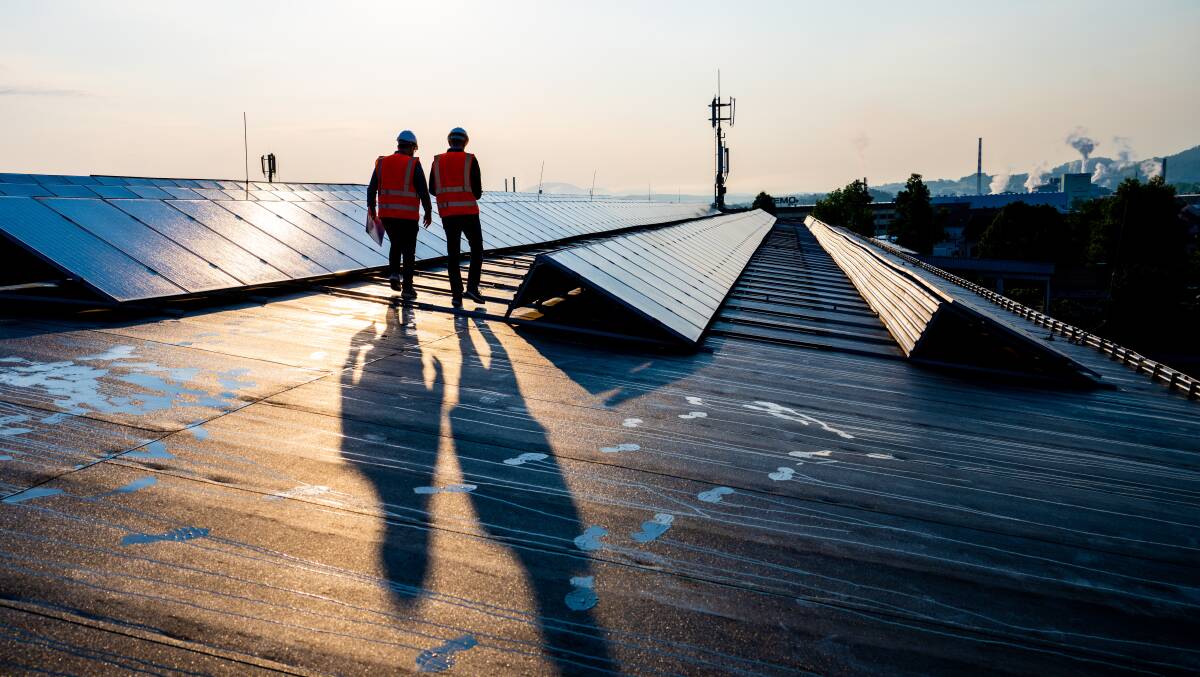
Workers would be at least $1000 better off with stronger competition and a better flow of capital to the most productive firms, according to a Reserve Bank of Australia research paper.
Subscribe now for unlimited access.
$0/
(min cost $0)
or signup to continue reading
As the federal government considers its response to the findings of the Productivity Commission's multi-volume report on the nation's poor productivity performance, a study released by the RBA indicates wage earners are paying an increasingly heavy price for declining competition and greater difficulty obtaining finance.
According to the research, there has been a sustained decline in investment outside the mining sector over the past decade and the economy has become less dynamic since the mid-2000s.
Both developments have dragged on productivity, the authors, RBA economist Jonathan Hambur and e61 Institute researcher Dan Andrews said, with a greater share of capital and labour going to less productive firms.
"Firms and product markets have become more stagnant," the authors said.
"Firms are less likely to enter and exit [the market], the largest firms ... have become more entrenched and market concentration and mark-ups have increased."
At the same time, the ability of workers to move between jobs has slowed, meaning that scarce labour is "increasingly trapped in lower productivity firms".
This has come at a heavy cost to workers and the economy, the authors said.
"Our estimates suggest that in 2017, GDP [gross domestic product] was around $13 billion, or $550 per person or around $1000 per worker, lower than it would have been otherwise," they said.
The findings echo the conclusions of the Productivity Commission, which warned without a lift in productivity future incomes will be 40 per cent lower and the working week 5 per cent longer than they would otherwise be.
The commission found "stark increases" in concentration in key industries, a slowdown in rate of businesses exiting industries and the prolific use of anti-dumping measures in the past decade.
In its report, the commission recommended action to make the economy more dynamic, including immediately cutting import tariffs to zero, removing anti-dumping measures, accepting offshore product standards and reducing barriers to services trade such as temporary migration rules, tax settings and recognition of overseas qualifications.
READ MORE:
Treasurer Jim Chalmers said although the government would not adopt all of the commission's 71 recommendations, its report was an "important input into the things that we are contemplating in the lead up to the Budget, [and] more broadly as well".
"You get productivity by investing in people, by investing in technology and by fixing our broken energy markets, so we get cleaner and cheaper, increasingly renewable energy into our system - those are our priorities," he said.
"We don't think you get productivity growth ... by hacking away at people's job security. We don't believe you get productivity by hacking away at clean energy programs. We think the best way to get productivity growth in this country is to invest in people and their capacity, to fix our broken energy markets, and to make sure that technological change works for us, and not against us."
Assistant Minister for Competition, Charities and Treasury Andrew Leigh said the RBA study was "a substantial contribution" to research on economic dynamism.
Dr Leigh said since coming to office, the Albanese government had acted to strengthen competition by banning unfair contract terms and increasing penalties for anti-competitive conduct.
"Right now, we're consulting on specific regulations for digital platforms and a ban on unfair trading practices," he said.
"We know that recent decades have seen a rise in market concentration and markups, and a fall in startups and job mobility, and we're committed to building a more competitive and more dynamic economy."
Dr Leigh has also asked Treasury and the Australian Competition and Consumer Commission to report on whether non-compete clauses in work contracts are constraining wages and hampering competition.


